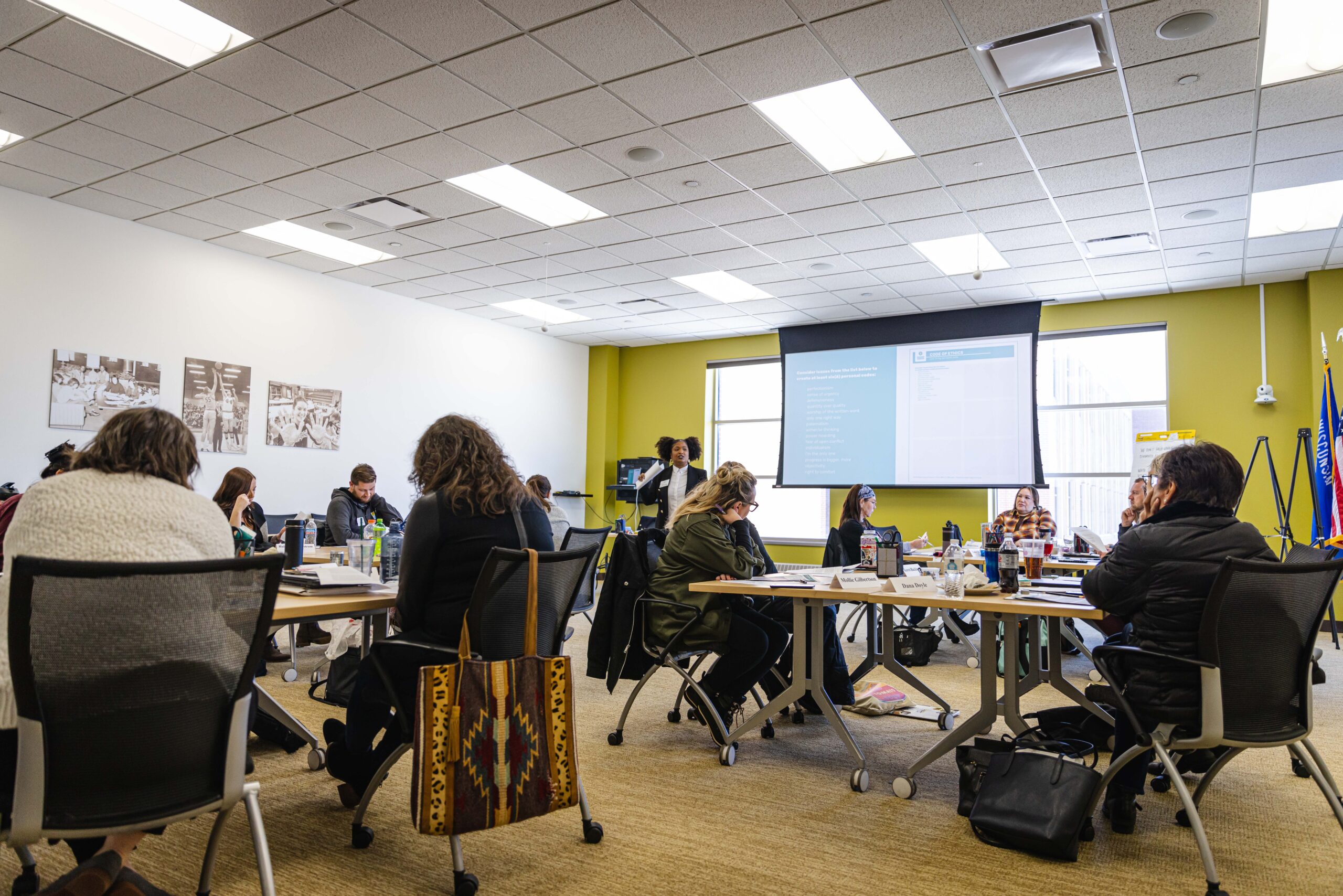TYPE
TOPIC
The University of Wisconsin-Superior has more than 50 program offerings, select online and graduate programs. But to keep pace with developing technology, changes in industry and community needs, that array of educational opportunities must change. One of the newest additions to the university has been microcredentials and digital badges offered through the Center for Continuing Education.
A microcredential is a short learning experience designed to teach new skills or to upgrade existing ones. Often, they are designed to gain relevant skills that are needed in today’s workforce.
“There are a variety of different options within the microcredential realm that we’re going to offer on the credit and non-credit side,” said Nicky Wilson, program evaluation specialist for the Center for Continuing Education at UW-Superior. “Some of our certificates in Continuing Education really fall into the definition of what a microcredential is. They are smaller batches of either credits or time in courses that are really skill specific.”
In January, the policy for microcredentials on campus was approved by Faculty Senate, thus beginning the planning process. The next steps involved a call for proposals from faculty to create industry-driven microcredentials.
“We’re offering microcredentials that are driven by industry,” said Wilson. “What is industry looking for? What are their needs for current or incoming employees? How are positions in their business changing and how can we help support those needs?”
This fall, the focus will turn to microcredential credits. Once approved by UW-Superior’s Shared Governance, the first round of microcredentials will be launched to the community for the spring semester.
Microcredentials will have the ability to be delivered in a variety of formats from in-person to online.
“It really is up to the instructor,” said Wilson. “As we build on this, there will be various options. Instructors know best what will work for their course.”
The microcredentials at UW-Superior will be aligned with the National Association of Colleges and Employers (NACE) Competencies. NACE Competencies are career-ready competencies that include communication, problem solving, equity and inclusion, leadership, technology, teamwork, problem solving and professionalism.
CONNECTIONS WITH CAMPUS AND COMMUNITY
The addition of microcredentials at UW-Superior has also allowed collaboration between different departments on campus to provide specific learning opportunities.
“Right now, there has been some talk between the Criminal Justice and Social Work programs,” said Wilson. “They have different areas of expertise, but they could bring courses together to create a microcredential to someone working in those areas.”
Microcredentials have also added another way the university is working with the community. Through collaboration with the Link Center at UW-Superior, which serves as the central access point for career services, academic service-learning, internships, undergraduate research, voter engagement, strategic partnerships, employer relations and regional outreach, the Center for Continuing Education has met with various community businesses and organizations to discuss ways microcredentials can be of assistance.
With the ability to assist in boosting employee engagement, Microcredentials can also solve workforce challenges by offering focused training for new or transitional employees.
“One of the messages we’re hearing from an employer perspective is additional training around leadership and transferrable skills such as problem solving and communication,” said Wilson. “Those are community needs that we as a campus need to support for the area and continue being the ‘Anchor of the North.’”
BADGE BUILDING
Successful completion of a microcredential results in earning a badge. Digital badges allow individuals to visibly display their achievements. They are visual representations with embedded meta-data that can be used by an individual to show verified competencies, skills, or achievements.
“Once they earn the badge, that’s something they are able to keep forever,” said Wilson.
The Science of Brewing class was the first to issue badges to students who met the criteria.
“The key piece with digital badging is that whether it’s credit or non-credit, learners still have to be able to demonstrate some type of learning,” said Wilson.
Badges are grouped into three kinds. The first is academic, which are stackable toward a degree, based on exiting courses and programs, for academic credit. The second is enhancement, which includes co or extracurricular activities and are not for credit. The third kind are non-traditional. This includes continuing education, up-skilling, retooling for advancement and industry recognition.
Representing skills as a badge allows individuals to share abilities online in a way that is simple, trusted, and can be easily verified in real time. Each badge is embedded with evidence of where, when, how and why it was earned, which allows the badges to serve as authenticated digital certificates. Badges provide employers and peers concrete evidence of what individuals accomplished to earn a microcredential along with listing a proficient skill.
Digital badges can be shared on social media accounts, such as LinkedIn. They can also be displayed on a digital resume, in an ePortfolio and within an email signature.
A BRIGHT FUTURE
As all the possibilities that microcredentials hold is unfolded, the university will continue to look at ways to grow with and assist the campus and community.
“It’s an initiative we’re taking on campus that was driven by UW System President Jay Rothman,” said Wilson. “We’re moving forward with what we’re hearing from the community. We have a three-year plan and every year we’re hoping to move forward with additional microcredentials. Right now, the sky is the limit. It’s going to be a benefit to the campus and something we’re offering to the community. There is a lot of potential for growth to build on what we’re already doing and to assist the community.”
For more information about microcredentials or digital badges, call the Center for Continuing Education at (715) 394-8442, email badges@uwsuper.edu.
